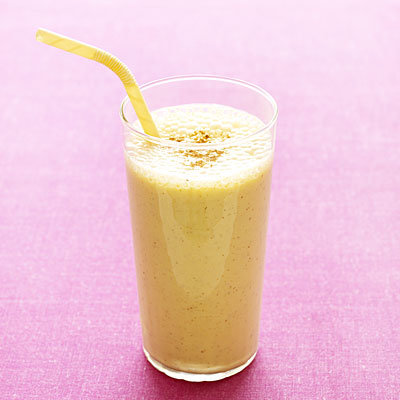Peanut Butter for Weight Loss: Good or Bad?
1. Good for Weight Loss:
Nutrient-Dense:
Peanut butter is rich in essential nutrients such as protein, fiber, healthy fats, vitamins, and minerals. This nutrient density can contribute to overall well-being and support weight management efforts.
Protein Power:
Peanut butter is an excellent source of plant-based protein. Protein is crucial for building and maintaining muscle mass, enhancing satiety, and reducing the risk of overeating.
Healthy Fats:
Peanut butter contains monounsaturated and polyunsaturated fats, which can help lower LDL (bad) cholesterol levels and reduce the risk of heart disease. These fats also provide sustained energy and enhance nutrient absorption.
Fiber Content:
The fiber in peanut butter promotes satiety and fullness. It can help control appetite and prevent overeating, contributing to weight loss efforts.
Appetite Control:
Peanut butter's combination of protein, fiber, and healthy fats may help regulate hunger and reduce overall food intake. This can be beneficial for managing caloric intake and promoting weight loss.
Nutrient Retention:
When consuming peanut butter in moderation as part of a healthy diet, it provides essential nutrients that support overall health. Maintaining adequate nutrient intake is important for sustainable weight loss.
2. Bad for Weight Loss:
Caloric Density:
Peanut butter is calorie-dense, with about 188 calories per tablespoon. Overindulgence in peanut butter can contribute to weight gain if calorie intake exceeds energy expenditure.
Fat Content:
Although peanut butter contains predominantly healthy fats, its high fat content can be a concern for those seeking to reduce their fat intake. Excessive fat consumption can lead to weight gain and related health issues.
Sugar Content:
Some commercially produced peanut butter brands may contain added sugars, which increase calorie content and can negatively impact weight management efforts.
Inappropriate Consumption:
Consuming peanut butter in excessive quantities or neglecting to balance its consumption with other nutritious foods can lead to weight gain. It is essential to practice portion control and incorporate peanut butter into a well-balanced diet.
Personal Sensitivity:
Some individuals may have food intolerances or allergies to peanuts, making peanut butter consumption unsuitable for them.
In conclusion, peanut butter can be a nutritious and supportive food for weight loss when consumed in moderation as part of a balanced diet. However, its calorie and fat content should be taken into consideration, and overconsumption should be avoided. Individual health goals and preferences should guide decisions about incorporating peanut butter into a weight loss plan. Consulting a registered dietitian can help determine the best approach for incorporating peanut butter into a weight loss strategy.
-
Diets in Review: Make an Informed Decision
Diets in Review: Make an Informed Decision
-
The importance of counting calories for weight loss
Full knowledge about calories and how they relate to weight los
-
Weight Loss Fast How Can You Lose Weight Faaast....?
Is fast weight loss possible? Probably not at the rate that everyone
-
Fat Flush Water Recipe
Refreshing fat flush water is actually just plain water enriched w
-
How to Slim Down at Any Age
V
-
Make Weight Loss Easier With These Tips
If youre thinking that you want to start making changes in your life
- Weight Loss Diet
- Apple Cider Vinegar and Honey Recipe to Treat Arthritis, Indigestion & Obesity
- Week 12: Back to the grind
- 10-Minute Ab Routine Which Burns More Stomach Fat than Half an Hour Run
- Feel Full Without Adding Calories
- 8 Easy Ways to Kick-Start Your Metabolism
- Healths Angels Lose Their Halos
- Raw Food Diet: What To Know
- Week Five: Debbie Dieter (Wah Wahhhh!)
- Drink This Healthy Drink At Bedtime And Reduce Belly Fat- Results Guaranteed!
- Top Weight Loss Tips Quick And Naturally



